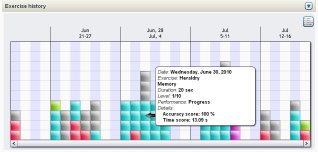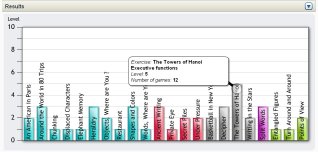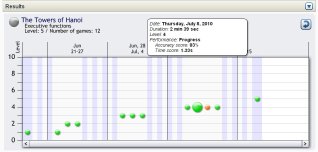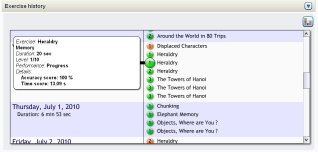The Aging Well Program
The Aging Well Program is a specialized program designed for those diagnosed with Mild Cognitive Impairment as well as healthy seniors who may be concerned about their cognitive abilities.
The program has been designed by Dr. Bernard Croisile, M.D. Neurology, Ph.D. Neuropsychology, Department head at Neurological Hospital, Lyon France. This program is based on a proven product, Activital, which is used in hundreds of retirement homes in Europe.
- A organized into 5 modules
- All exercises delivered through engaging interactive games
- Thousands of unique exercise combinations in each game
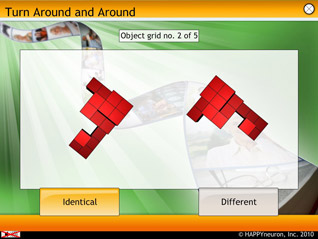
Sample of game screen
-
Program progression rules
- Each game consists of nine levels.
- The patient is invited to start at level 1 and, based on successful performance they may progress to higher levels.
- At any given level achieved, all lower levels are playable
-
The designs of the games have been optimized for the unique needs of seniors. For example:
- smaller game problem sets, game hints, unlimited time for completion, along with large fonts and buttons.
- Many of the games are suitable for use with touch screens.
- The patient cognitive profile (compliance and progress) is visible to the therapist and optionally visible to the patient.
- The ideal training intensity for positive outcomes is 30 minutes a day, 5 days a week.
Once you have selected your patient, you can see his/her results.
(Click to enlarge pictures)
The exercises are grouped in modules to ease the process of building an adapted training plan for your patients.
Memory
Executive functions
Language
Visual and Spatial Abilities
The table below shows the different patient conditions in which this program is adapted to be used.
| Patient Condition | Notes |
|---|---|
| Aging Brain | Age related cognitive impairments and therapies |
| Mild Cognitive Impairment (MCI) | Age related cognitive impairments and therapies |


 Previous
Previous